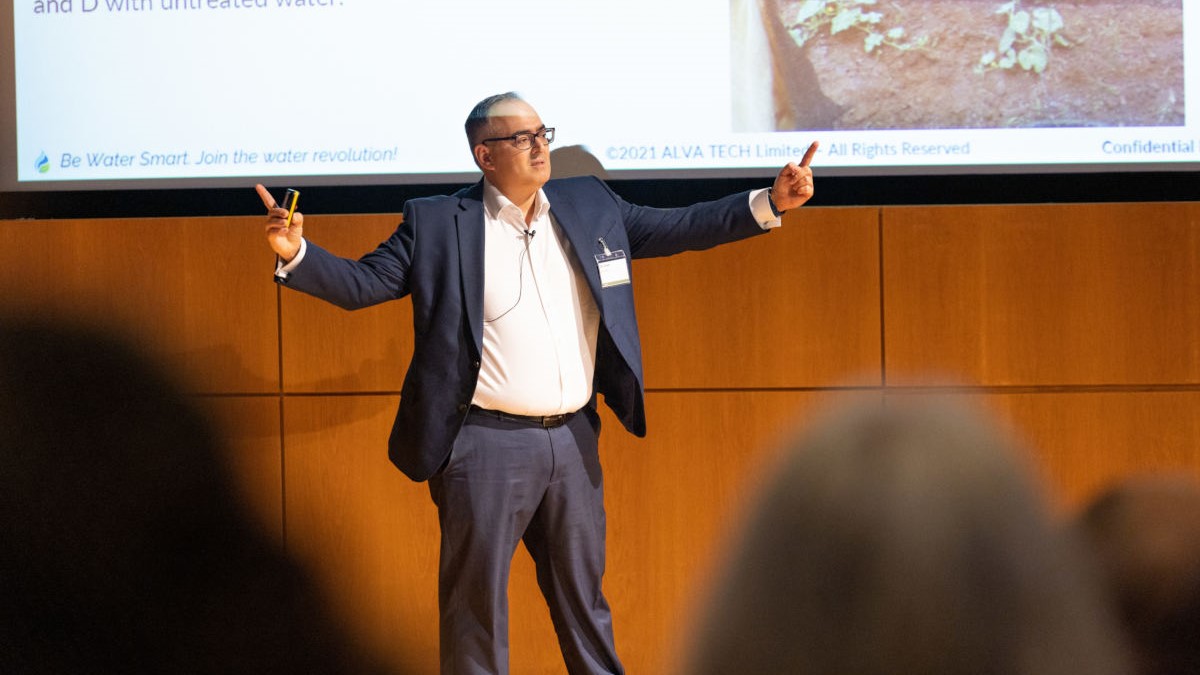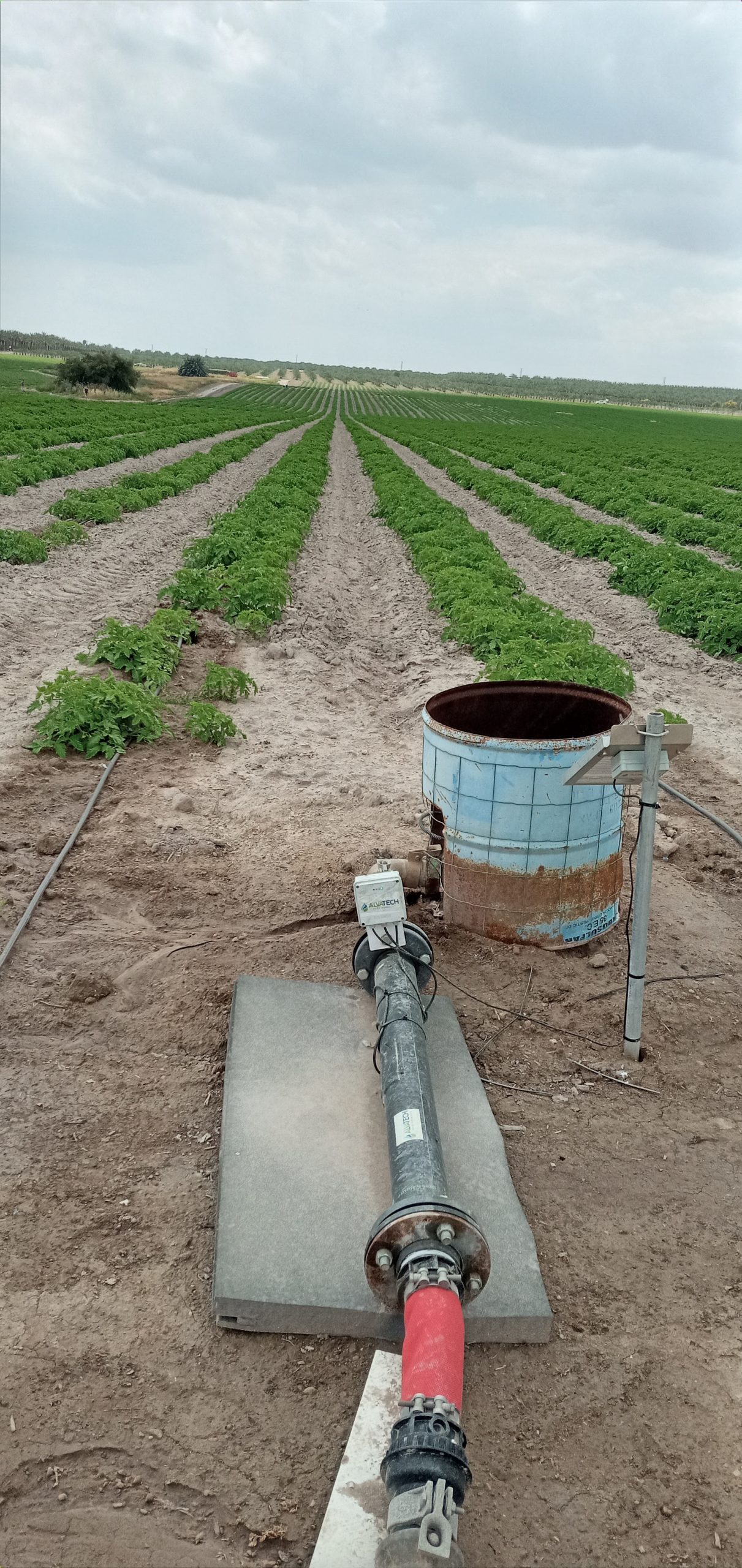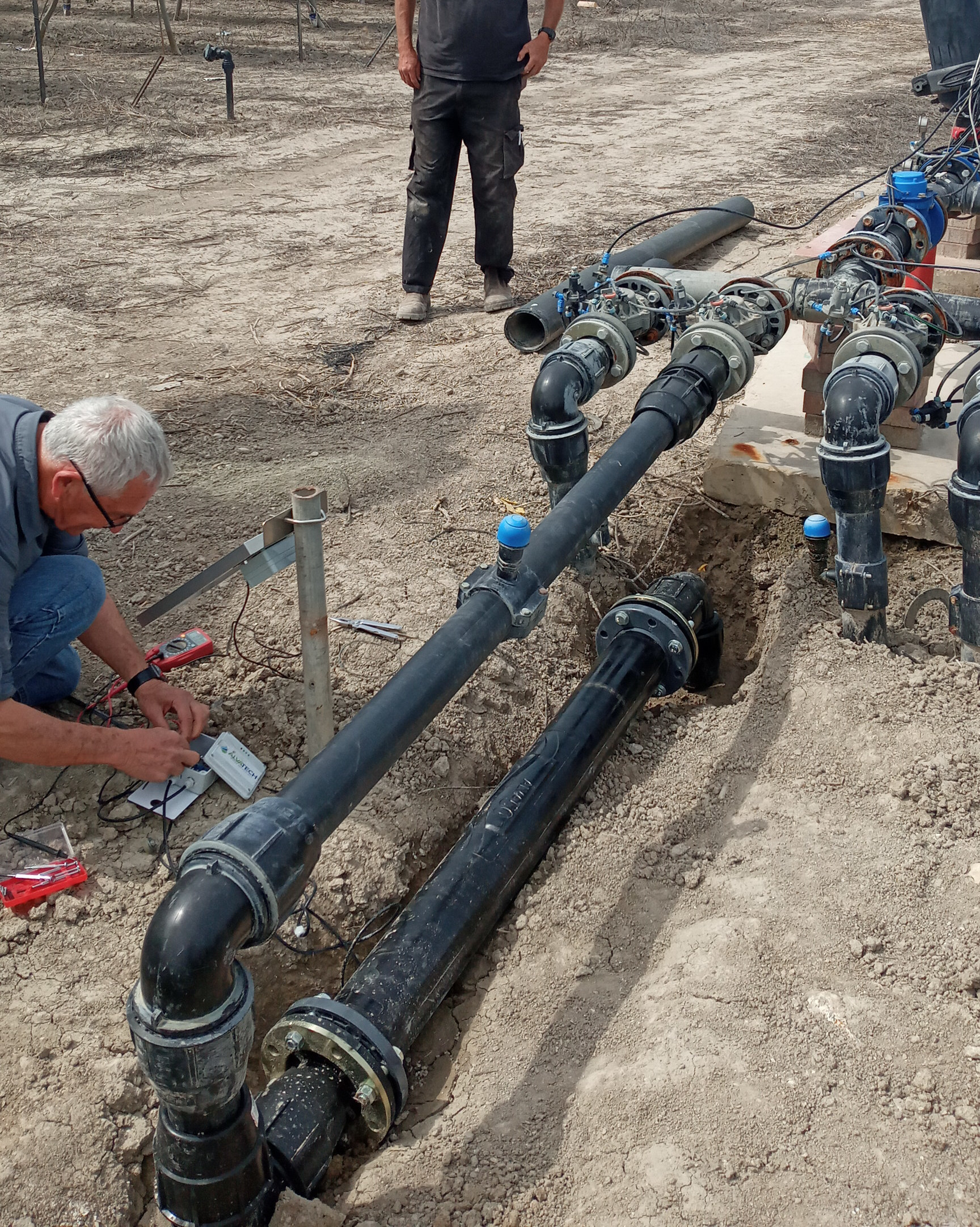As further droughts are predicted worldwide there will be increasing demand for crop irrigation, but a lack of fresh water is causing extensive soil degradation.
To overcome this issue, ALVÁTECH has developed ActiveWater, a sustainable and affordable solar-powered treatment for water that reduces its salinity by up to 50% and improves soil health, enabling poorer quality water to be used without harm to the crop or the environment. The company presented in the Agri-TechE REAP 2022 Start-up Showcase.
The London based company, which operates in 27 countries, is looking to expand into Europe and presented in the Start-Up Showcase at the Agri-TechE REAP conference. ALVÁTECH’s devices can be incorporated into existing irrigation systems and are already being used in Africa, LATAM, MENA and North America with the support of governments and NGOs such as the Red Cross.
Zac Gazit, CEO and Managing Director of ALVÁTECH, explains:
“20% of all irrigated land has been lost by salinisation and in many arid and semi-arid regions the only accessible water source is saline or brackish.
“We have developed an innovative grower-friendly technology that enables farmers to use available high salinity water while improving soil biodiversity with every irrigation cycle. This advanced agri innovation repairs the soil, breaking down salt crusts and walls, improving water infiltration and plant growth.”
ActiveWater disrupts the way water molecules move and interact with other molecules and minerals in the soil. ActiveWater increases water absorption by the soil, reducing the salinity around the plant roots while improving nutrient uptake by the plants. This saves 20-50% of the water normally required for irrigation and reduces the need for fertilizers.
ALVÁTECH technology was tested by the Kenya Red Cross at Lama. Elijah Muli, Head of Disaster Management, comments that the ALVÁTECH device was fitted to reduce salinity in water and soil used for growing sweet melon and watermelon. The salinity was reduced from 2,722 Micro Siemens to 580 Micro Siemens in less than two weeks.
He observes: “The results were very clear and positive with a significant reduction in salinity. With ALVÁTECH treated water the crops were developing and fruiting with proper leaf coverage with a dark green colour. In the untreated control the fruits were few, developed poorly and leaf coverage was poor and yellowing.
“The Kenya Red Cross Society views ALVÁTECH as a possible solution to allow farmers to use water with higher salinity for irrigation, grow more and faster and avoid environmentally damaging and costly alternatives.”
Dr Belinda Clarke, Director of Agri-TechE, comments:
“The summer of 2022 has been one of the driest on record, with many farmers in the east of England reporting brackish water in their bore holes. I am sure that ALVÁTECH’s innovative approach to water resources will attract significant interest from the agri-tech innovation ecosystem. REAP has provided profile for many exciting early-stage businesses with collaborators, end users and investors. 14 of the companies previously featured have collectively raised over £92 Million in the last three years.”
A UN report (2014) estimated that 62 million hectares, an area the size of France, of previous agricultural land has been salt-affected at an estimated global economic loss of US$27.3 billion per year*.
IPBES suggests that approximately 190 million acres (76 m.ha) of irrigated land has already been permanently lost to salinisation.
ALVÁTECH is offering the system in the form of weatherproof devices, which easily slot into existing irrigation systems. The technology is affordable and available on a subscription basis to make it more accessible to farmers.
*World Losing 2,000 Hectares of Farm Soil Daily to Salt-Induced Degradation: unu.edu/media-relations/releases/world-losing-2000-hectares-of-farm-soil-daily-to-salt-induced-degradation.html





